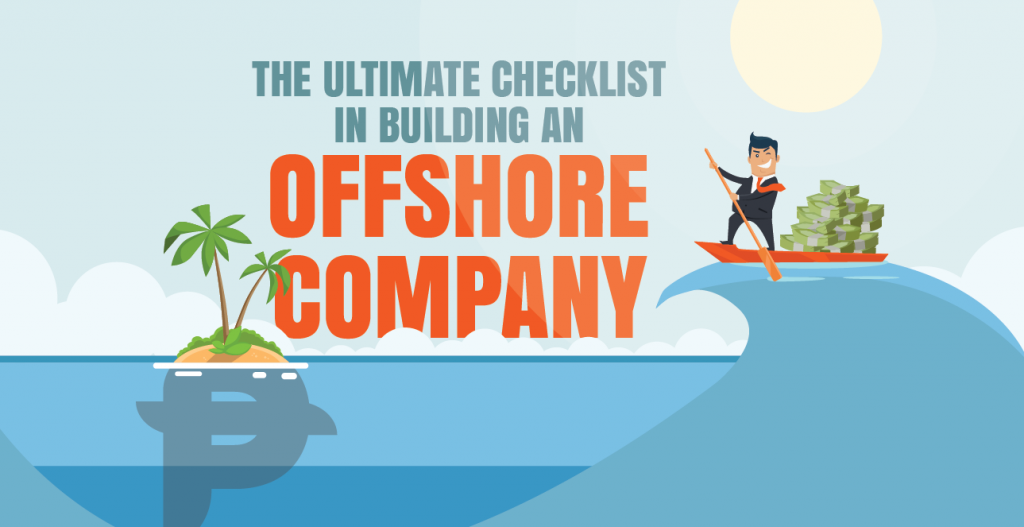
In the business world, offshoring is a misunderstood concept. For one, it’s commonly interchanged with outsourcing—another expansion model, but a different practice. Outsourcing focuses on contracting third-party services, while offshoring is more on enlisting those services abroad and sometimes even basing particular departments of your company overseas.
Most businesses use offshoring tactics due to a number of reasons such as insufficient talent pool, legalities or regulations in place, and climate. As such, it becomes a viable option for businesses if they want to keep their operations in check. This also translates to various benefits to the best locations for offshoring.
Offshore staff solutions are also preferred by companies who want to stay competitive by employing the expertise of talents in other countries. This is an especially wise move if you’re already at a stage in your business where you want to scale globally.
With the demand for both outsourcing and offshoring in Metro Manila, companies and investors alike are branching out into the “next-wave cities” in the Philippines like Cebu. The numerous IT Parks, BPO Centers, and the continuously improving infrastructure makes the urbanized city outside Metro Manila an attractive hub spot for those who are planning to build an offshore company.
If you’re thinking of going offshore, there are some things you should keep in mind. This infographic serves as a checklist that will cover all your bases once you take the leap.

The Offshoring Industry is Growing
The offshore market will continue to grow in the coming years; there’s no doubt about that. With cost, availability, business environment, and tech-savviness being top factors, this business model is quite attractive.
Asia seems to be the ideal location for offshoring. India, China, and Malaysia are the top three countries for offshore services according to a 2019 study, but countries like the Philippines, Indonesia, and Vietnam are following not too far behind.
Most companies are looking at IT services and data security as their priority for the shift to outsourcing. The IT-BPO operations in Cebu bolstered the industry’s growth outside of Manila. With most business processes being on the cloud, it only makes sense to beef up digital security if you want to offshore.
Six Essentials for a Starting Offshore Company
Before you take the plunge in your offshore company, make sure you have the following ready for smooth integration.
1. Business registration
Legalities are one of the first things you should consider when operating outside your home country. If you already have an offshoring partner like Manila Recruitment, they can most likely process the requirements and application for you. This is probably the easiest way to do it.
However, if you’re doing things with a business partner and want to expand from there, you have to make sure you have the necessary permits to operate. Cebu City has several economic zones. Situating in these zones and becoming a PEZA-registered offshore company brings about many fiscal and non-fiscal incentives for investors.
There are usually published local business registration steps online. This way, you can avoid unwanted penalties and the like.
2. Strategic location
When choosing a country to offshore, make sure that it satisfies the conditions of running your company. Companies that expand their operations in Cebu take advantage of a competitive talent pool, more affordable lease rates (office rental rates range from P400-P1,100 per sq.m.), and lower land development costs.
First, you should be comfortable with the talents you’d source from there. They should be experts in their craft and could provide quality service. Next, you should be able to afford the rates of the services offered. The major plus of offshoring is that it’s cheaper than in-house work, so do your research.
Last but not least, it should be a strategic location in terms of trading and shipments if your company has physical goods. This makes it easy and fast to distribute your product to your target markets.
3. Recruitment
Many companies choose to expand into tertiary markets like Cebu as the labor market in Metro Manila grows saturated. In 2018, Amazon successfully offshored their customer service in Cebu, putting its trust in the skilled workforce of the region.
Recruiting your offshore team might get tricky, but it’s one of the most critical steps. Again, if you already have an offshoring partner, this may be more manageable. If not, you can enlist the help of one, or at least bank on the network of trusted business contacts in the area. Your offshore team will carry your brand outside your home country, so make sure you choose professionals who are up to the task.
4. Flexible workspace
Having an offshore arm automatically puts you in a position of operating some processes digitally. In this case, it makes sense to have a flexible workspace in terms of schedule and location.
For one, you could have in-house employees the freedom to accomplish their work remotely. Cebu City’s economic success—becoming the hub for outsourcing and property development—means that it also suffers from traffic crisis. You could implement more flexible hours so that teams from other parts of the globe can communicate and work together from time to time.
5. HR and payroll service
Giving your global team equal benefits, timely pay, and HR support is crucial in building your offshore team. This could get tricky, but it’s entirely possible with the help of online tools and an overseas partner. You should aim to have your payroll services streamlined, following labor codes and wage policies in all the countries you’re operating in.
6. Offshore staff solutions partner
Based on the above essentials, getting an offshore staff solutions provider may be one of the best things you can do for your company. Not only will this make things easier with remote management, but you’ll also have access to quality talent should you need to scale on the fly. They can take care of admin tasks for you, too, so that you can tick a few other things on your business checklist.
Why Choose Cebu?
Cebu has positioned itself to be a great option for businesses that are looking for offshoring and outsourcing opportunities. Being the capital city in Central Visayas, Cebu has become a progressive location for different industries such as e-commerce, IT, and business process outsourcing (BPO).
In line with this, you have access to a very talented pool with skills that are highly relevant to your operations. Cebu is home to some of the top universities in the country such as the University of Cebu, and University of San Carlos.
With less companies to compete with, the talent pool is ample enough to all the companies that wish to outsource in the city. Moreover, Cebu has an area called Mactan Newtown Development which is applauded for its “mixed-use” concept: residential, commercial, and office spaces.
Tips to Build an Offshore Company
Are you convinced yet? There are a few more reminders below in building a successful offshore company. Consider these expert tips to make life easier for you as you navigate offshore team management.
- Assign a trusted contact person – Having a point person whom you can ask for updates is a great way to keep operations smooth. This will relieve you of any stress or anxiety of not managing your overseas team yourself. A country manager can help expand your business and lead your offshore team in the right direction, even if you’re not always there.
- Have a strong communication system – Set clear expectations with your team right from the start about communication and response times. Have plans in case of emergencies, too, so you’re not left scrambling in the event of a problem.
- Establish hands-on management – You can still be hands-on with your offshore team by forming a connection with them even while overseas. Regular visits, video calls, and chat groups can help you establish your presence in the organization.
- Define goals and objectives – Which targets would you like your offshore team to accomplish? Communicate these from the get-go. A business moving towards a clear goal will have better results in their bottom line. Let your team know which parts of the company they’re most involved in and what impact they are expected to make on your sales funnel and overall business growth.
The Future is Offshore
The world is increasingly becoming interconnected. Offshoring not only strengthens that but also gives workers diverse opportunities worldwide and an increase in their economy for countries. Cebu City’s growing outsourcing industries, cyber parks, new developments, and outstanding pool of workers position itself as a prime offshore location.
It may not take long for us to see the majority of companies operating this way, as offshoring shows no signs of slowing down. Are you ready to take the next step and incorporate offshore staff solutions to your business? Contact Cebu Recruitment today!













